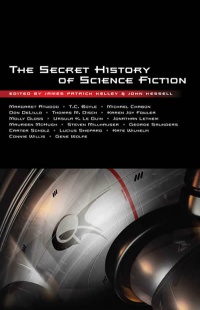 I’m a little bit frustrated right now, because I just read Clay’s Ark by Octavia Butler, and only after finishing it did I realize it was part of a series (the Patternmaster series), with several other books preceding it. And I hate reading books out of sequence, even when it doesn’t really matter to the series’ overall plot — it offends my sense of order. The edition I have (1985 Ace paperback) does not identify itself as part of a series, so….. thanks a lot, Ace. But as far as I can tell, the books are only loosely connected, so I suppose there’s no real harm done.
I’m a little bit frustrated right now, because I just read Clay’s Ark by Octavia Butler, and only after finishing it did I realize it was part of a series (the Patternmaster series), with several other books preceding it. And I hate reading books out of sequence, even when it doesn’t really matter to the series’ overall plot — it offends my sense of order. The edition I have (1985 Ace paperback) does not identify itself as part of a series, so….. thanks a lot, Ace. But as far as I can tell, the books are only loosely connected, so I suppose there’s no real harm done.
All that aside, this was a decent novel. It’s about an astronaut who, as part of Earth’s first voyage to another planet, brings a terrifying plague back home. But rather than taking the typical approach you might expect — a story about the scientific and political response to such a problem — the novel focuses on a small group of infected people and their struggles and agonies.
The plague is an alien microorganism that invades and transforms the body at the cellular level, turning it into an efficient vehicle for aiding in the microorganism’s reproduction. It alters a person’s DNA and bestows superhuman abilities: enhanced strength, senses, and healing ability. But it also comes with a much less desirable effect: an overwhelming compulsion to spread the microorganism, both by having offspring which will be born infected, and by infecting others through physical contact. Those who are infected are consciously aware that they are carrying a disease that could easily spread and engulf all of humanity, but at the same time the alien compulsions are so strong they’re almost impossible to fight.
The lone surviving astronaut who brought the infection to Earth is a strong-willed individual who is barely able to (partially) keep control of himself. After his ship crash-lands, he hides out in a small mountain valley surrounded by California desert, creating a small community of the infected who wage a constant battle to keep the plague isolated, and to retain whatever they can of their humanity. They gradually take in more members, as a minimum concession to their enforced compulsion to spread the infection. These additions to the community are kidnapped from nearby highways out in the desert wasteland, which in this chaotic near-future world have devolved into something right out of The Road Warrior.
This novel strikes me as being very similar to the other Butler novel I’ve read, Fledgling, in that they both deal with some of the same issues, and there are lots of places where the one evokes a strong memory of the other. The infected in Clay’s Ark remind me a lot of the vampire symbionts from Fledgling. Both are transformed into something not-quite-human; both are granted special abilities but pay a steep price for them; both struggle against overwhelming compulsions or addictions, and hate themselves for not being able to overcome them. Both novels also deal with uncomfortable areas of sexuality, with young people who appear frail but who possess unknown strengths, and with the loss of family and loved ones.
The novel switches between alternating “past” and “present” chapters. The past plotline is about the astronaut and how he initially starts his mountain colony, while the present is concerned with the latest additions to the community, a doctor and his two teenage daughters, and their attempts to escape. The strongest part of the book is the characterization. You can really feel the horrible stress these people are under because of the changes they’ve undergone, and the choices they have to make.
I feel the plotting could have been stronger — it was perhaps a bit predictable in places — but it’s worth reading nevertheless. And the rest of the books in the series sound at least as interesting as this one.















